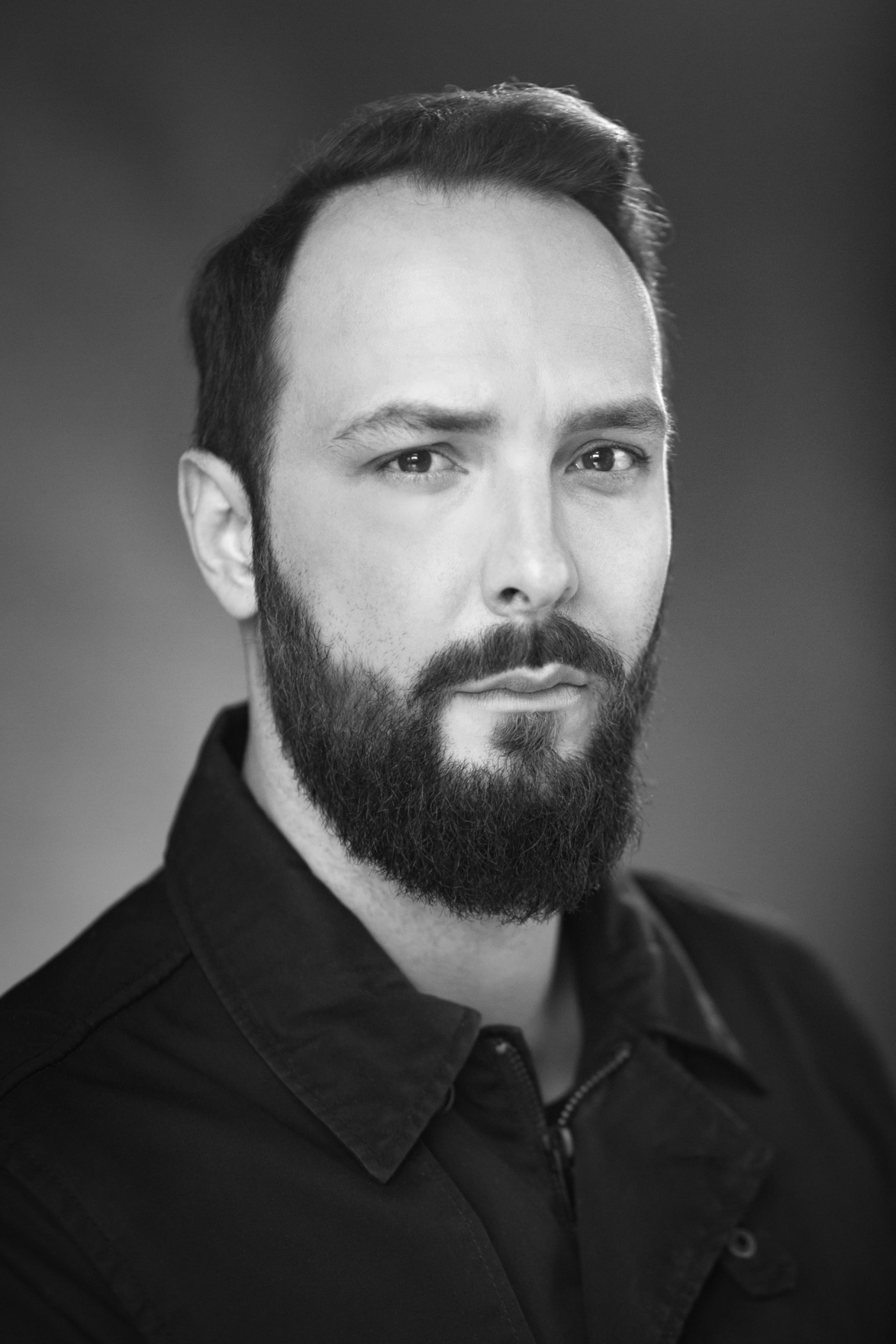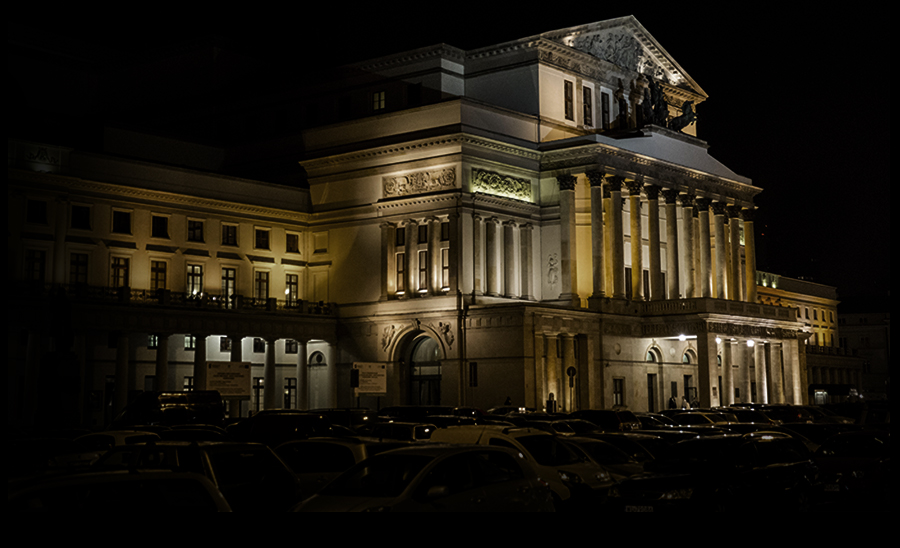
Wojciech Faruga studied directing at the Aleksander Zelwerowicz Theatre Academy in Warsaw and philosophy at the University of Warsaw.
In 2008, as part of the Odkryte/Zakryte programme, he staged a performative project Kniaź Patiomkin. Siedem snów Schmidta o rewolucji after a play by Tadeusz Miciński for the Dramatyczny Theatre in Warsaw. Between 2010 and 2016 he was a script writer for Wyłącz system events at the History Meeting House in Warsaw (original projects include Radiostacja and Tele-le-wizor). He co-created one of the episodes of the theatre series XIX -> XXI. Powrót do przyszłości, marking the opening of the Copernicus Science Centre in 2010. He was involved in the development of the concept for the Katyń Museum.
He often develops original scripts and has designed sets for many of his productions. Together with the 52°43’N19°42’E PROJECT, he staged Carson City (script, direction, set design) in 2010 and San Fernando Valley direction, set design) in 2012, both of which were shown at many theatre festivals.
Since 2012 he has been the artistic director of the KORCZAK International Theatre for Young Audiences Festival. In 2014 he acted as the artistic director of the 18th World Congress of the International Association of Theatre for Children and Young People ASSITEJ.
Wojciech Faruga's credits include stage adaptations of Polish literature. He has explored the themes of faith and religiousness. He co-wrote (with Jarosław Jakubowski) and directed Wszyscy święci for the Polski Theatre in Bydgoszcz (2012), wrote and staged Betlejem polskie inspired by Lucjan Rydel's play for the Dramatic Theatre in Wałbrzych (2013), staged Artur Pałyga's play examining human suffering, W środku słońca gromadzi się popiół for the National Old Theatre in Kraków (2014), and a production exploring the contemporary history of Poland, Prawy lewy na obcasie by Andreas Pilgrim to mark the opening of the Tbilisi International Festival of Theatre (Kote Marjanishvili State Drama Theatre in Tbilisi, 2016).
Tackling the convention of melodrama, he staged Trędowata. Melodramat, which he co-wrote with Paweł Sztarbowski based on the novel by Helena Mniszkówna (Polski in Bydgoszcz, 2014), Balladyna. Kwiaty ciebie nie obronią after Juliusz Słowacki's Balladyna, Beatrix Cenci, Mindowe, Książę Niezłomny, and Maria Stuart (Dramatyczny in Wałbrzych, 2015), and Lalka. Najlepsze przed nami after Bolesław Prus (Powszechny Theatre in Warsaw, 2015; which he also adapted for the stage). Together with Julia Kijowska, he directed Spowiedź motyla, a performative concert inspired by the childhood diary of Janusz Korczak and collages by Henry Darger's (Ateneum Theatre in Warsaw, 2017; which he also designed).
He spotlighted the plight of women caught in the workings of history, violence and lies in Królowa Margot. Wojna skończy się kiedyś with a text by himself and Tomasz Jękot, drawing on the novel by Alexandre Dumas and film by Patrice Chéreau (Polski Theatre in Bielsko Biała, 2014) and Pilgrim's Maria Antonina. Ślad królowej (Polski in Bydgoszcz, 2018; which he also designed). He staged Shakespeare’s Antony and Cleopatra (Jaracza Theatre in Łódź, 2016) and Chekhov's Seagull (Powszechny Theatre in Warsaw, 2017). He directed Magda Fertacz's Rosemary, a play exploring sexual violence against women, inspired by the novel by Ira Levin and its film adaptation by Roman Polański (Śląski Theatre in Katowice, 2019; which he also designed) and Dekalog based on the miniseries written by Krzysztof Piesiewicz and Krzysztof Kieślowski (Royal District Theatre in Tbilisi, 2019).
He devised the television play Walentyna, exploring the myth of Soviet Union heroine, written by Julia Kijowska and himself based on the diaries of Valentina Tereshkova and input from Soviet cosmonauts (2013). He revisited the theme of scientific experimentation and space exploration in Nieważkość, which he also wrote and designed (Nowy Proxima Theatre in Kraków, 2018).
Wojciech Faruga's Wszyscy święci won an award at the 11th World Premiere Festival in Bydgoszcz (2012). His Betlejem polskie received an honourable mention at the 19th Contemporary Polish Play Staging Awards in Warsaw (2013), while Walentyna won the Platinum Remi Award at the 48th Worldfest Independent Film Festival in Houston in the Film and Video Art – Independent Experimental Film and Videos category (2015).
In 2020 he began his four-year term as general director of the Polski Theatre in Bydgoszcz.
In March 2023 his production of Astor Piazzolla's Maria de Buenos Aires will open at the Polish National Opera.
(photo: Paweł Paprocki / National Theatre)






 ''
''